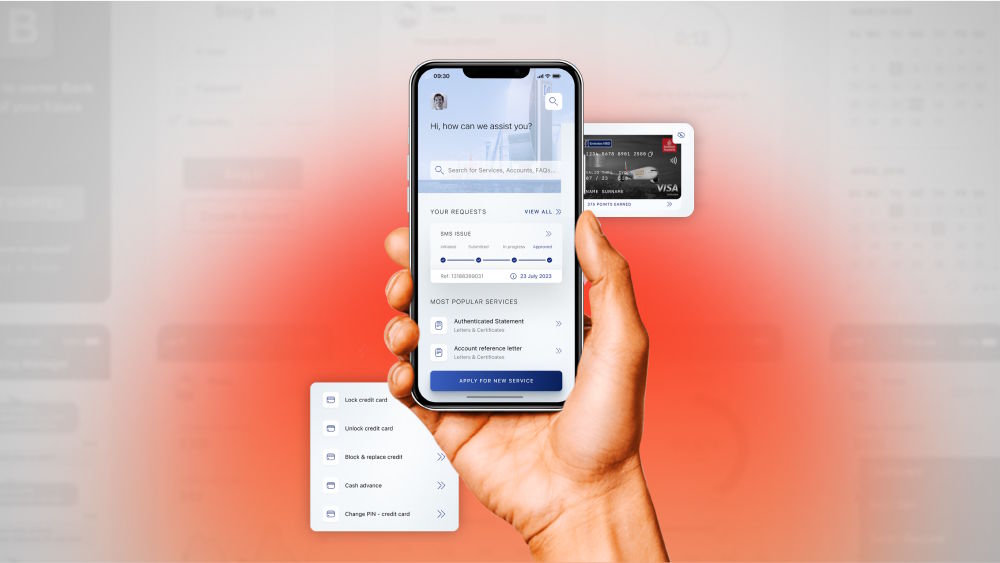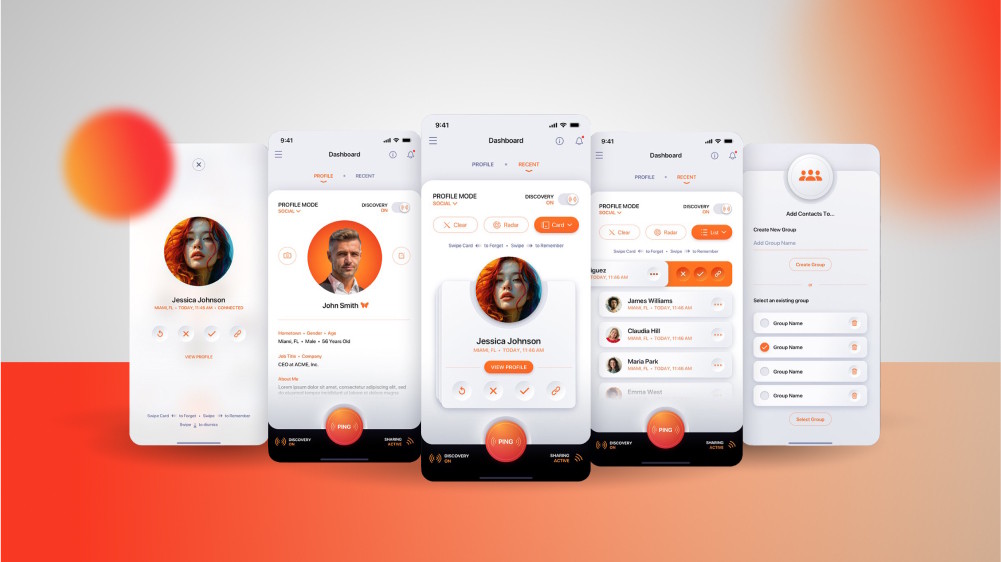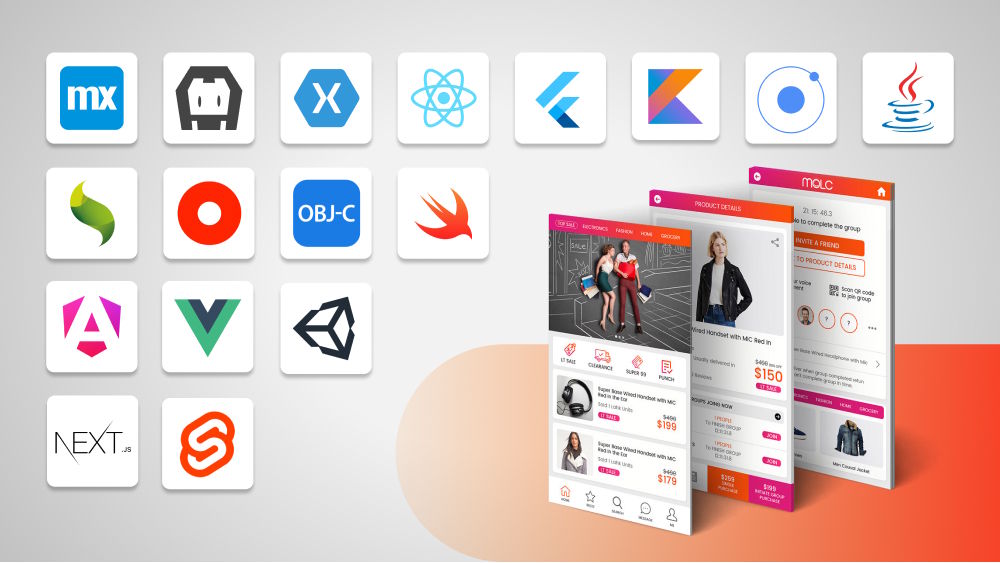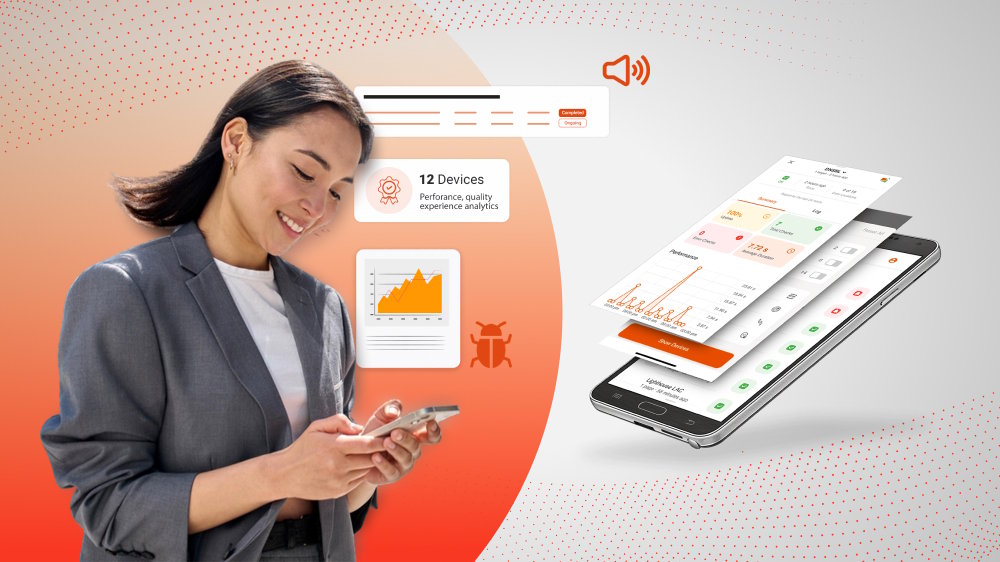
Top Mobile App Development Platforms - Which to Choose?
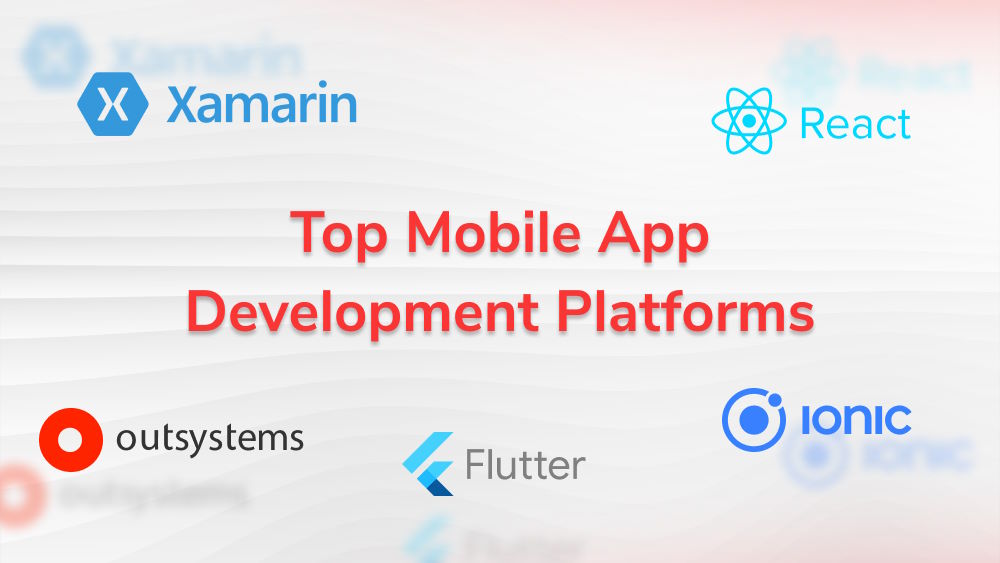
Content Map
More chaptersThe development of software technology and the impact of the Covid-19 pandemic have changed people’s technology use behavior. Today’s users prioritize tools that ensure compactness, convenience, and fast internet connection. And there we have mobile devices, which encompass all these criteria.
Embracing technology trends, businesses focus more on developing mobile applications to cater to their audiences’ needs. The demand for mobile app development has led to the emergence of several mobile app development platforms that offer various features and functionalities. These platforms provide developers with the tools to create high-quality mobile applications quickly and efficiently while also providing businesses with a cost-effective solution.
Among hundreds of available platforms, which is the right choice for your business? This article provides you with the topmost popular mobile app development platforms nowadays. Let’s find out.
What Is a Mobile Application Development Platform?
Mobile App Development Platforms (MADPs) are platforms that enable organizations to develop, manage, and deploy mobile applications in a way that streamlines the mobile app development process for various operating systems, including Windows, IOS, and Android.
Depending on the structure of the mobile development team and the expected outcome of business in future products, mobile application development platforms will provide different features to serve this unique need. These features often include software development frameworks, software testing, cloud-based storage, analytics, user management, and development capabilities to help developers turn mobile app ideas into reality and deploy apps more efficiently.
6 Types of Development Platforms for Mobile Apps
Currently, on the market, there are multiple platforms for building apps, especially mobile apps. Each mobile application development platform offers unique benefits and features that cater to the specific technical requirements, levels of programming expertise, and budgets of the business. Below are the six types of mobile app development platforms most commonly used by developers.
- Cross-platform apps: Allow developers to deploy apps by running on multiple operating systems with a single code base.
- Native apps: Allow developers to build native mobile apps specifically for one mobile operating system by using native APIs and tools.
- Low code/no code apps: Require little to no coding expertise to build mobile apps by offering visual interfaces and drag-and-drop tools.
- Web-based apps: Use web technologies like HTML, CSS, and JavaScript to build apps that can be accessed through a web browser.
- Hybrid mobile apps: Combine both native and web-based elements by running on multiple platforms and using web technologies like HTML, CSS, and JavaScript while being wrapped in a native container.
- Custom development platform: Custom platforms designed to serve specific business requirements or internal uses.
Benefits of Mobile App Development Platform
Thanks to the development and modernization of software technology, mobile app development platforms have become increasingly important in today’s digital landscape, where mobile devices have become the primary means of accessing the internet. It is undoubtedly, development platforms for mobile applications bring tons of benefits for developers. Here are some reasons why such custom application development platforms are needed.
- Ease of use
- Multi-platforms support
- Competition advantages
- Faster time-to-market
- Cost-effectiveness
- Better security and maintenance
- Tools and pre-build components available
- Analytics and report automation
- No expertise needed (for some development platforms)
Top Mobile App Development Platforms & Their Unique Benefits

In order to serve the needs of businesses for mobile app development, the technology market has increasingly appeared mobile application development platforms with different interfaces and feature sets. However, because each mobile application development platform has its own characteristics, businesses need to be wise in choosing such ones to avoid unnecessary losses in terms of budget and time. It’s time to explore your options and maximize your business’s performance by choosing the right development platform.
Below are the top 5 most commonly used platforms for mobile app development today.
Xamarin
Xamarin belongs to the group of cross-platform apps acquired by Microsoft in 2016 for developers to create native apps for both IOS and Android, as well as Windows using a single C# codebase. Regarded as one of the most popular mobile application development platforms today, Xamarin has successfully supported and built mobile applications such as The Word Bank, Alaska Airlines and American Cancer Society, etc.
Like some other platforms, Xamarin uses the .NET framework and provides users with a development ecosystem with a rich feature set and cloud-based services like Visual Studio and Azure. Xamarin is best suited for creating high-performance mobile apps that work across multiple platforms.
Unique benefits when using Xamarin:
- Native user interface: Build apps supported on iOS, Windows, and Android devices while using a single codebase, giving users a seamless experience across all devices.
- Shared codebase: Allow developers to share up to 90% of their code between different platforms.
- High-performance: Run faster and more efficiently than hybrid or web-based apps due to native APIs and languages.
- Strong community support: Provide support through forums and social media while creating reusable libraries and components.
- Microsoft integration: Take advantage of Microsoft’s cloud services, such as push notifications and database management.
React Native
Created by Facebook, React Native is an open-source platform that allows users to build apps for iOS and Android using JavaScript and React. React Native was first released in 2015 and has since gained popularity among users to its ease of use, flexibility, and cross-platform capabilities.
One of the outstanding features of this kind of mobile application development platform is its ability to allow developers to write code once and use it across multiple platforms. Besides, with a set of pre-built UI components suitable for a variety of mobile app interfaces, developing mobile applications with a user-friendly interface is no longer too difficult, even if you have no coding knowledge and design.
Unique benefits when using Native React:
- Hot reload feature available: Allow developers to see changes in the mobile app immediately without rebuilding the entire app.
- Easier assembling qualified developers: Use JavaScript and React (well-known web development technologies) to make it easier to find qualified developers.
- Faster development time: Allows users to reuse code across different platforms and take advantage of pre-built components.
- Open-source: Allows developers to be free to use and contribute to the overall development of the platform.
Flutter
Flutter is an open-source SDK mobile app development framework developed by Google. Flutter was first released in 2017 and has since gained popularity among developers due to its ease of use and flexibility. By using a single codebase, Flutter enables developers to create high-performance, seemingly attractive and natively compiled mobile applications for iOS, Android, Mac, Windows, Linux, etc.
This mobile application development platform well supports users in building iOS/Android apps in a short time, especially users who do not have extensive coding knowledge, thanks to a range of pre-built UI components called widgets. For that reason, for applications that require complex graphics and animations, Flutter may not well-suite them.
Unique benefits when using Flutter:
- Customizable widgets: Create visually attractive UIs based on pre-built UI components.
- Easy integration: Provide easy integration with third-party libraries and APIs.
- Faster development time: Reduce development time by hot reload features, customizable widgets, and a single codebase.
- Material design: Provide design principles and best practices for creating user-friendly mobile apps.
Ionic
Ionic is an open-source development framework specialized for mobile applications that enables developers to build cross-platform apps with high quality using web technologies such as HTML, CSS, and JavaScript. First introduced in 2013, Ionic gradually became popular among developers because of its ease of use and flexibility.
With its native-like user experience, pre-built UI components, and fast development time, Ionic is an excellent choice for businesses looking to create mobile apps that work seamlessly across different platforms while providing an excellent user experience.
Unique benefits when using Ionic:
- Cordova plugins: Provide access to a wide range of Cordova plugins, which allows users to integrate the app with native device features such as camera, GPS, and contacts.
- Progressive Web Apps (PWA): Help businesses to develop a single application that works across both desktop and mobile devices.
- Ionic app flow: Streamline the development process with continuous integration, automated testing, and deployment.
- Native-like user experience: Create applications that work seamlessly across different platforms while maintaining consistency in design and functionality.
OutSystems
Last but not least, OutSystems is a low-code development platform that allows developers to build enterprise-level mobile apps quickly and easily without requiring extensive coding knowledge. OutSystems is easy to use because it comes equipped with components and automated tools. By using this app development platform, developers spend time focusing on the process of designing and customizing the application.
With OutSystems, developers can create complex web and mobile applications in a fraction of the time it would take to build them using traditional coding methods.
Unique benefits when using OutSystems:
- Scalability and security: The ability to handle large amounts of traffic and data and provides robust security features to protect against cyber threats.
- Integration capabilities: Improve operational efficiency by allowing businesses to connect new applications with existing systems and databases.
- AI-driven development: Analyze requirements and suggest the best approach for developers using AI algorithms.
In addition to the mobile app development platforms above, you can also consider some other names such as Appcelerator, PhoneGap, Kony, Adobe Experience Manager, Appery.io, Sencha, IBM MobileFirst, Unity, Cordova, Mendix, etc. Some platforms are free, but there are also paid platforms. Your job is to research them carefully before deciding which is your own best choice.


